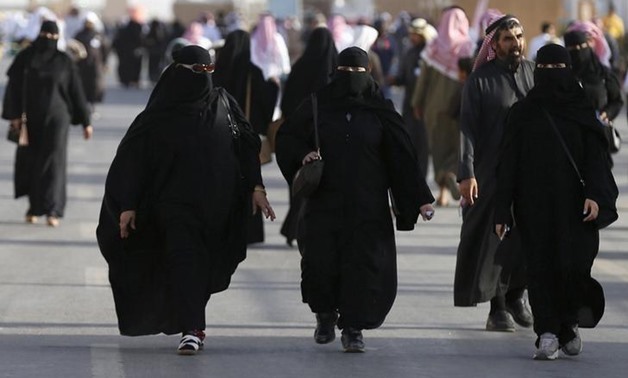
FILE PHOTO: Saudi women arrive to attend Janadriyah Culture Festival on the outskirts of Riyadh – Reuters/Faisal Al-Nasser
CAIRO – 2 August 2019: Women was granted the right to travel without a male guardianship permission, as a royal decree has allowed any citizen above the age of 21 to apply for a Saudi passport.
The royal decree was published on Friday by the official gazette.
Women were also granted the right to receive official family documents, and to register marriage or divorce or child birth, according to recent amendments.
Saudi Arabia's Crown Prince Mohammad bin Salman has moved to grant women more rights since he took post in June, 2017.
The decades-long decree banning women from driving - the last law of its kind in the world – was finally overturned in June last year.
The move, earlier ordered by King Salman, was part of sweeping reforms pushed by the crown prince, who aims to transform the economy of the world's top oil exporter and open up its so-called cloistered society.
Allowing women to drive has removed the conservative Islamic kingdom's status as the only country where women is banned from driving cars. Many think that the decision comes as part of “Vision 2030” reforms announced in 2016.
In the 2018 Global Gender Gap, the Kingdom ranked 141 of 149 countries, Reuters reported. The Global Gender Gap is a World Economic Forum study on how women fare in economic and political participation, health and education.
Guardianship
Following the women driving ban removal, Human Rights Watch called on Saudi authorities to take a step forward in gender equality and to put an end to the current state of men being in charge of women.
The organization said in a statement that Saudi women still face constraints, including the need to have permission from their guardians (fathers or husbands) for obtaining passports, travelling outside the Kingdom or doing a study abroad, or marrying.
They also face many challenges in dealings, as they would not be able to file a lawsuit for example, if their guardians did not approve it or were not available.
“The state of men’s superiority to women is the biggest obstacle women face to gaining their rights,” said Sarah Whitson, Middle East director at Human Rights Watch.

Comments
Leave a Comment